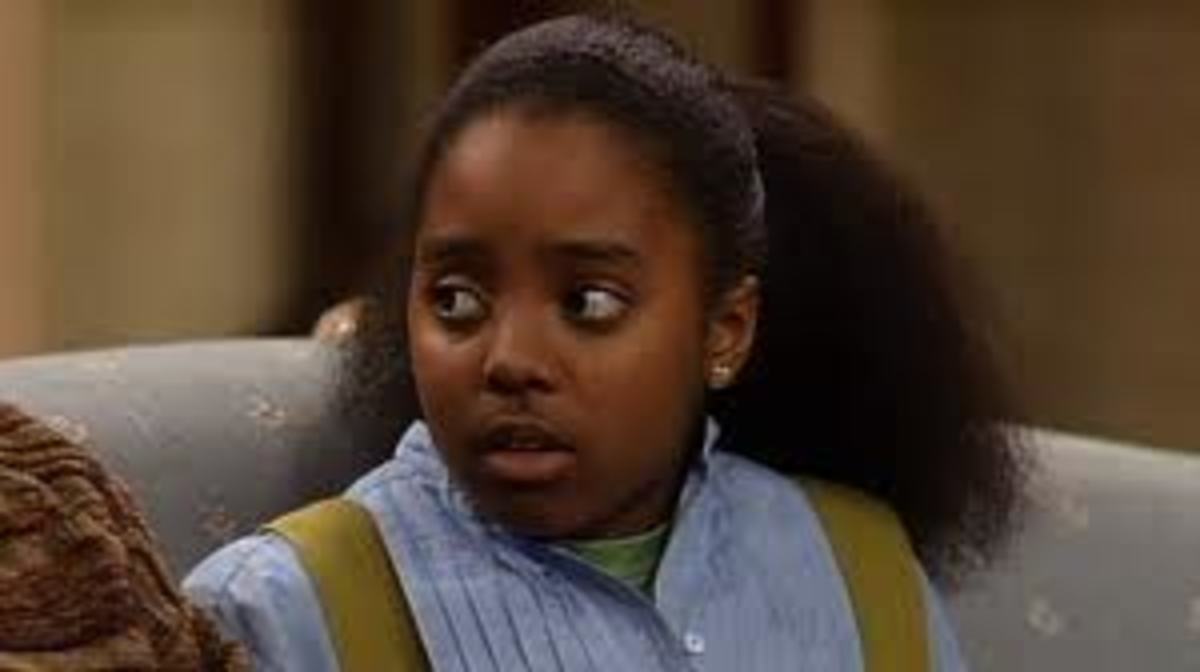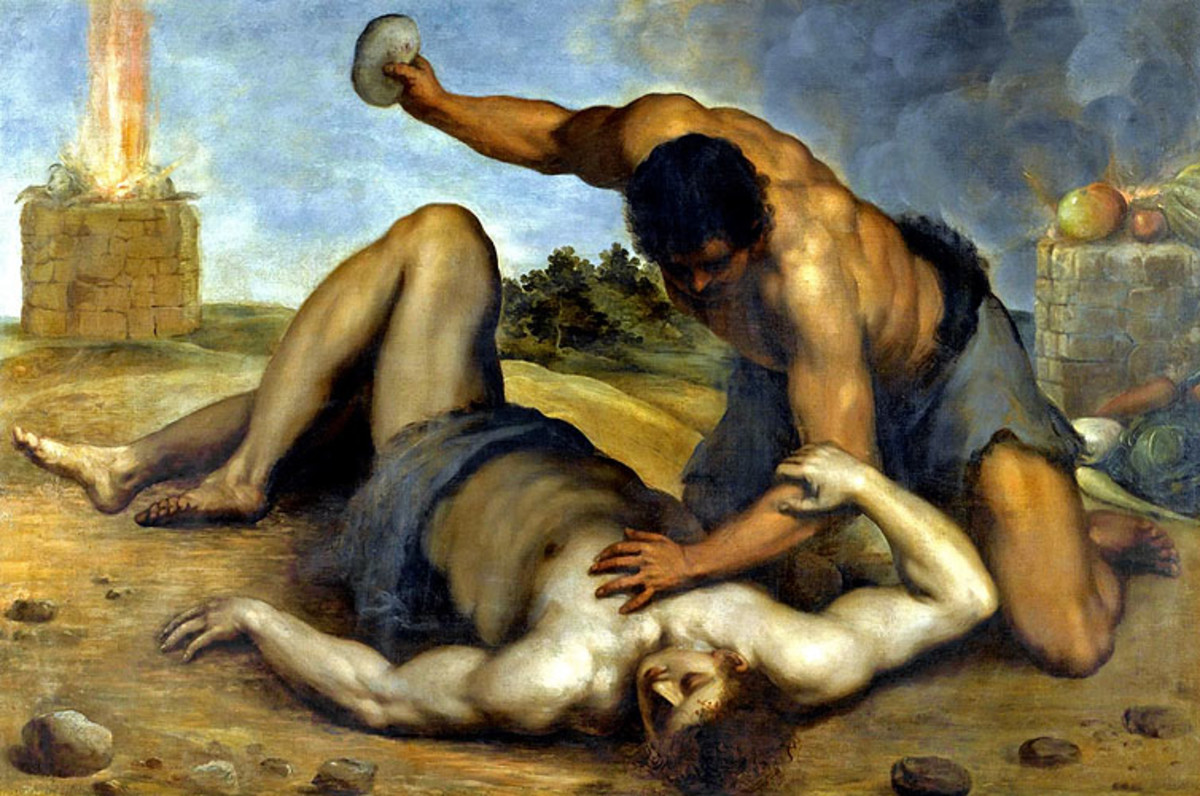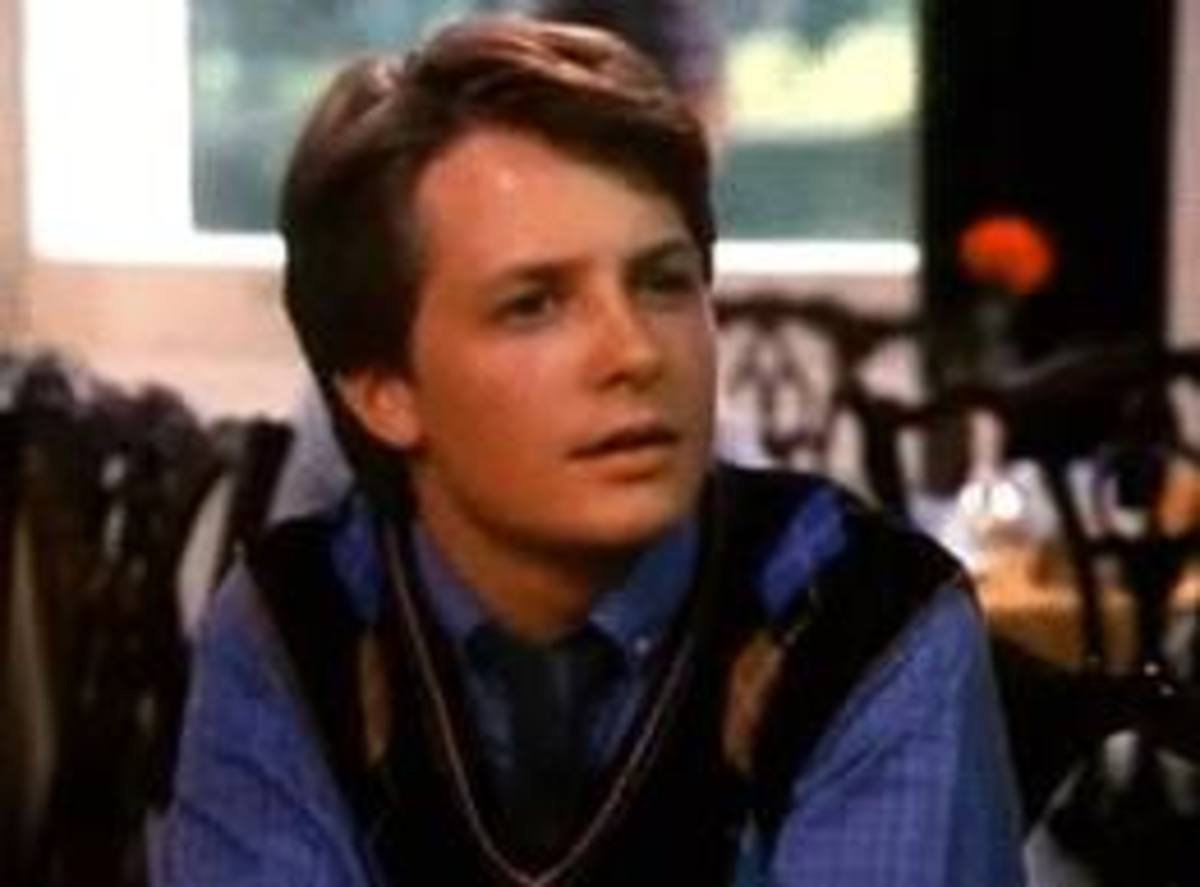Siblingship and Its Ratio to a Child's Happiness
Why So Many People Believe That Having Siblings is WHOLLY CONDUCIVE to a Child's TOTAL & PROPER Development & Happiness
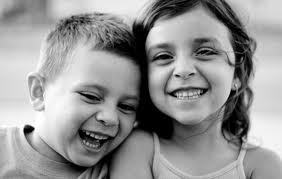
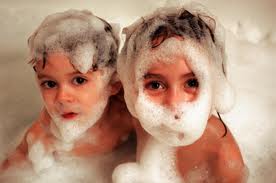
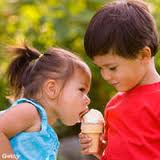

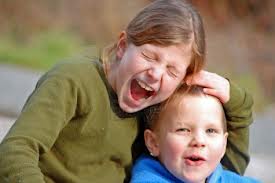

The DARK Side of the Sibling Relationship
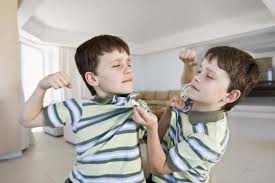
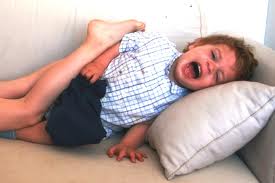
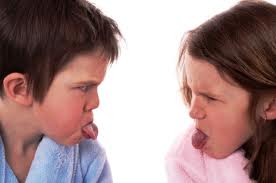
Parents and Their Impact Upon Siblingship in the Family

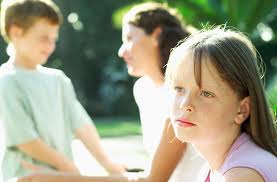
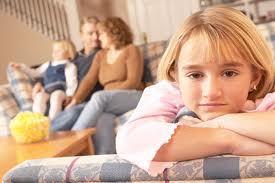
Siblingship and Birth Order
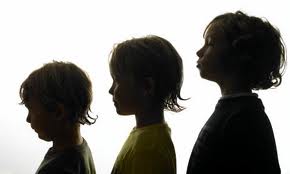
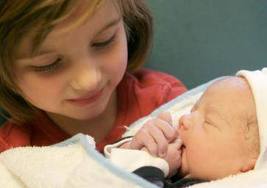
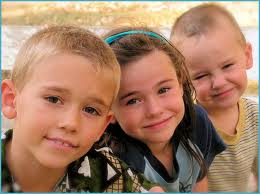
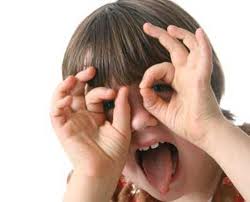
Other Influences on Siblingship
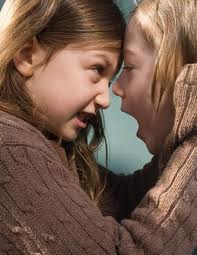
Does Having Siblings Make Children Happier?
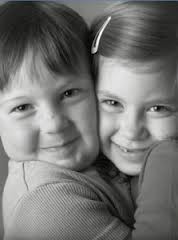
Does Having Siblings Necessarily Equate to a Child's Happiness?
This hub is in response to the request, "Do you think that children who grow up with siblings are happier?", made by fellow hubber Wasteless Project 2.
There are those who are staunch proponents of the ideology that siblings are equated to happiness in a child's environment. Such people adamantly argue that children with siblings are indeed happier because they have a companion/companions to share their innermost lives with. They maintain that siblings give children a verifiable family memory. They emphasize that siblings give children the primary lesson in interfacing with others after parents.
Many people strongly proclaim that siblings teach children the essentials of comprise and the art of sharing with others. They contend that children with siblings have firsthand knowledge as to how to relate to people. They believe that having siblings teach children that the world does not necessarily revolve around them. They opine that siblings teach children the importance of others.
There are people who proclaim that having siblings provide children with a rich family experience. They feel that children with siblings have instant companions and provide a commonality that friends and other relatives do not provide. They contend that the best thing in life is for children to have siblings. They believe that siblings provide children with this commonality and companionship throughout childhood into adulthood and after the death of their parents. They maintain that siblings are a bulwark against the outside world and outer society.
Other people maintain that siblings are an integral part of a child's development. They affirm that children cannot properly develop if there is no sibling to relate and spar with. They further assert that siblings help children mature in ways that parents simply cannot and/or do not. They add that siblings teach children lessons and things that parents oftentimes do not have privy to and what sometimes the latter consider to be quite off limits.
Then there are people who are strong and staunch proponents of the fact that no family is complete unless it contains 2 or more children. They are of the opinion that families without siblings are woefully incomplete families. They feel that siblings add sustenance and wholeness to family life. They maintain that loving parents provide their children with siblings. In fact, they adamantly contend that the BEST thing for parents to do is to see that children have siblings. They feel that those parents who elect to have one child as selfish and thoughtless of their child's wants and desires. They feel that such children are "lacking" in more ways than one.
Yes, there are many proponents of the ideology that children who grow up with siblings are happier and better adjusted than those who did not have siblings. However, there are recent studies done authenticating that such is not necessarily the case. In an article by Susan Newman, Ph.D. titled THE DARK SIDE OF SIBLINGS in the magazine Psychology Today, she delineates that all is not necessarily warm and loving in Siblingland. Dr. Newman states that siblingship oftentimes have its dark undercurrent. According to Dr. Newman, sibling abuse is an integral and regular part of the sibling relationship.
Murray Strauss, Ph.D., a psychologist and author of the book, BEHIND CLOSED DOORS: VIOLENCE IN THE AMERICAN FAMILY, reports that 74% of siblings push, shove, and/or use other forms of physical assault to each other. Dr. Strauss further relay that an overwhelming 85% of siblings regularly participate in verbal aggression against each other. Studies confirm that sibling abuse is quite de rigueur in many families but parents are loathe and refuse to admit this commonplace occurrence.
This is the darker side of sibling rivalry. The sibling relationship is oftentimes a hierarchical relationship. The oldest child in the family is often the most dominant while the youngest child, conversely, is the least dominant in many cases. Many siblings use their birth order status to assert and exert their power over the siblings they perceive to be the weakest and/or the most vulnerable.
As we all know, sibling rivalry is an integral component in many sibling relationships. When there is more than one child in the family, there is often competing for parental resources whether it is emotional or financial. Siblings regularly and routinely play mind games and other psychological games in order to receive parental attention, love, and respect.
Other components of the sibling relationship is parental treatment of each siblings. Although many parents purport that they treat each of their children equally, they have one child or more whom they treat more preferentially than other children. They may refuse to acknowledge this but their children.......KNOW. Yes, Virginia, favoritism does exist in families.
Favoritism in families have existed from time immemorial. An example of favoritism is the biblical Joseph and his 11 brothers. Joseph, of course, was the favorite child in the family. Naturally, Joseph's brothers resented him and decide to get even with and to teach him a lesson.
Children who are parental favorites oftentimes incur the wrath of other children in the family. The other children feel slighted and unloved by their parents. They wonder why is their sister/brother receiving the attention and the accolades while they are not. There is bound to be jealousy and resentment on the part of the other children in the family. Favored siblings are likely to be resented or worse by other siblings. Oftentimes, parental favoritism causes a severe division between/among siblings that cannot ever be repaired.
As there is the favored child, there is its diametrical opposite, the unfavored child. There are parents who treat one child more differential than the other children in the family. This differential treatment is of the negative kind. This child is treated, disciplined, and punished more harshly than the other children in the family. Oftentimes in many families, there is a juxtaposition of the favored and unfavored child. Many parents play upmanship games which often pit the favored and unfavored child against each other in order to curry their favor.
Unfavored siblings are often bullied and treated disrespectfully by their other siblings. This sibling feels quite inconsequential, like a persona non grata. Many unfavored siblings not only suffer ill treatment on the part of the parents, they experience it on the part of other siblings. On a turn of events, unfavored siblings can turn their rage towards the more favored siblings in the family, often abusing them or worse. There are many unfavored siblings who simply disconnect from their other siblings and from the entire family, searching for what they need, outside the family theatre, sometimes to quite deleterious consequences. However, many unfavored siblings find more positive role models and support systems among relatives and associates.
Another factor in siblingship is birth order. Each child in the family has expectations and responsibilities, if any, placed upon him/her based upon his/her ordinal birth order. Oldest children in the family are expected to set the example and to mature faster. They are often given adult responsibilities in childhood. The role of the oldest child in the family is dependent upon family size. In small and medium size families of 2-4 children, oldest children are often in the hip older sibling role. They do not have to assume the more burdensome and onerous tasks relating to their birth order. They can be in charge and assume guardianship roles without sacrificing their childhood.
However, in medium large, large, and very large families of 5 and more children, oldest children have a more arduous roles in the family. They are expected to assume the onus of the familial position. There are unwritten expectations to go above and beyond. They oftentimes have to be the second parent or in locos parentis to their younger siblings. This often means that they had to take upon adult duties early in life.
They often have no normative childhood and adolescence. Many oldest children in medium large, large, and very large families resent their roles and believe that they are the put upon, unappreciated, unpaid servant of their families. They feel that they have no individual selves or lives of their own, always having to sacrifice for others and placing others first while ignoring their own needs. Many oldest children in such families can be classified as parentified children.
Many oldest children resent their roles, feeling that they were treated harshly in comparison to their younger siblings whom they feel get away with murder. They can feel jealous of their younger siblings for liberties and freedoms they were allowed at an age when they were inundated with responsibilities. There are some oldest children who relish their ordinal birth order position, using it as a powerplay to lord it over their younger siblings at every conceivable opportunity. Some even go as far as to bully their younger siblings, using the philosophy that might and power equals preeminence and right to do as they please.
Middle children are often misunderstood and sometimes overlooked by their siblings. They are viewed as marginal people by both parents and siblings. Remember the Jan Brady syndrome. Middle siblings wonder WHO they ARE. They are not acknowledged for their individual selves. They are seen as the appendages of either an older and/or younger sibling. Oftentimes, they are ignored or lost in the shuffle.
Many middle children feel totally insignificant in the sibling order of things. Some either become total anonymous, believing that it is better not to rock the familial/sibling boat. Others separate psychologically from their respective siblings, making their own way and carving their unique niche. A few develop talents in order to be noticed and respected by their siblings and other family members. There are middle siblings who become highly vocal in order to get the attention they feel they deserve.
Because middle children feel left or sandwiched out between their older and/or younger sibling, they must often do things to get the attention focused on them. This attention can be either positive or negative. A study has confirmed that according to Dr. Alexandra Skew, a researcher at the Institute for Social & Economic Research at the University of Essex, middle children are more likely to be bullies because they are competing with older and/or younger siblings for parental attention whether financially or emotionally. Dr. Skew added as a result of this sibling competition, middle children tend to let off steam by bullying their siblings.
Youngest children can either have it the easiest or the hardest of all siblings depending upon the individual and respective familial circumstances. They are often babied and given less responsibilities than their older siblings, particularly the oldest, at similar ages. They also the ones who are treated the most preferentially by their parents They are allowed more leeway than their older siblings and are often punished less or not at all for offenses and infractions that their older siblings would be severely punished for.
Youngest children have the least responsibilities and obligations of any birth order. They have the most carefree childhood and adolescence of all the birth orders. In small and medium sized families of 2-4 children, youngest children, more or less, have equal or near equal parity with their older siblings. What goes for one, oftentimes goes for the other. A brother of a renowned quadruple threat celebrity reported that his parents punished him and his more famous sister equally when they committed an infraction. He further reported that he and his sister were treated equally when it came to doing chores, assuming other household responsibilities, and getting summer jobs.
However, in medium large, large, and very large families of 5 and more children, there is often a severe unequal parity in the treatment of children in relation to their respective birth orders. While oldest and some older children in the family are given responsibilities early in life, many youngest children are not given such responsibilities or if they are given responsibilities, they are given as few as possible. Many youngest children in medium large to very large families are indulged not only by their parents but also by their older siblings,
In many large to very large families, youngest children seldom have contact with their parents as their main contact is their oldest/older sibling who is assuming the parenting and other adult duties of the family. In many large to very large families, youngest children oftentimes have the opportunities, especially to pursue tertiary and further education, that their older siblings could not as the latter were needed to work to add extra money to the family.
Many youngest children in medium large, large, and very large families particularly love their ordinal position because they feel protected and loved by a large number of people. A famous singer from a very large family reported how she felt she and her siblings formed an emotional bulwark. An actor/singer and Holocaust survivor reported that his older siblings protected and nurtured him. While many youngest children feel protected by their siblings, there are others who were bullied and otherwise abused by their older siblings. One entertainer reported being bullied by his older siblings because they were jealous that he was the youngest and was treated the most preferentially.
Many youngest children do feel resentment and jealously from their older siblings because they received the parental attention that they did not receive. While this could occur in any size family, it is more prevalent in medium large to very large sized families. Many older siblings resent the leeway and license that the youngest siblings have in comparison to their situation. They also feel that the youngest was treated as the jewel and prize of the family whereas they were just there. In the case of the oldest child, he/she must felt discarded and/or benignly neglected by the parents with each successive birth, seeing the youngest child getting the lion's share of attention, is bound to make him/her resentful of the unequal familial treatment received at the hands of his/her parents.
Many siblings feel that their youngest siblings are spoiled, selfish brats who must be carried and cared for throughout life. They feel that the youngest sibling use his/her birth order as a ruse to avoid responsibility for himself/herself and his/her circumstances in life. Many youngest siblings do use the birth order card in order to avoid responsibility and to be rescued and/or taken care of by their older siblings even when they are capable of handling their own affairs.
Siblings relate to each other according to their particular birth order scenario for good or ill. Many siblings use their respective birth order scenario to bully and manipulate other siblings to do their bidding and/or to bend to their will. Many siblings resent other siblings because of the preferential treatment they believe that the other sibling has received by his/her parents. There are siblings who resent other siblings because they have opportunities that they did not have while they were the latter's age.
Then there are siblings who just DO NOT like their siblings period. There may be characteristics which cause one siblings to dislike, even hate another sibling. Such characteristics may be tangible or intangible. One sibling may dislike another sibling because he/she may be smarter or more attractive. One sibling may have a gift or talent that the other does not have such as being athletic or a gifted singer.
One sibling may dislike another sibling because they are total opposites in personality. While one brother is athletic and tough, the other may be sensitive and creative. One sister may be a studious introvert while the other is an in your face, gregarious extrovert.
One sibling can dislike or hate another sibling because that sibling is pursuing opportunities that he/she did not have or missed. There are a myriad of reasons why siblings have a dislike or hatred for each other outside of parental favoritism and/or birth order. Blood is not necessarily thicker than water. Siblings can and do hate each other, sometimes such feuds and animosities can last for a lifetime, sometimes not.
In conclusion, many people contend that children who grow up with siblings are happier. They argue that siblings provide children with instant companionship. They further insist that siblings teach children important interpersonal skills including life skills which are often beneficial in life. They relay that siblings are lifelong companions and are emotional bulwarks and networks.
However, studies have shown that siblings do not necessarily interface well with each other. Children are often physically, emotionally, and psychologically assaulted by their siblings. They further add that siblings routinely verbally abuse each other. These myriad abuses often lead to psychological issues such as inferiority complex and related issues in childhood and later on in life.
Children with siblings routinely compete with each other for parental favor and attention. Many are not above using less than positive means to gain such parental attention. Siblings are also affected by differential and/or preferential treatment by their parents. Favoritism affects the sibling relationship in many ways. Favored children are often resented by the less favored children in the family. This resentment can be manifested physically, psychologically, and/or emotionally. Unfavored children are oftentimes ill treated by their siblings which oftentimes leave irreparable psychological scars which often last for a lifetime.
Birth order is another factor in the sibling relationship. Children have expectations placed upon them based upon their respective birth order. They are also treated differentially based upon their birth order. While oldest children are expected to assume responsibility early on in life, youngest children seldom, if ever, assume such responsibilities. Middle children in many families are often overlooked by both parents and siblings.
The birth order dynamic affects siblings in different ways. Oldest children often feel resentment because of the inordinate expectations placed upon them at an early age while their younger siblings were given more leeway as to how to conduct their lives. Middle children often feel quite insignificant and inconsequential in comparison to their older and/or younger siblings, oftentimes making some noise in order to be noticed and appreciated by their siblings. Youngest children oftentimes are resented by their older siblings because of the preferential treatment that they receive in comparison to the latter.
Siblings can DISLIKE each other because of different interests, personalities, and other related factors. Having siblings is not a guarantee of happiness per se. There are other factors such as a stable socioeconomic condition, stable psychological familial condition, particularly that of the parents, and unconditional parental love. There are people without siblings who are happy. In fact, they are happier because they did not have to endure the constant sibling rivalry, gamemanship, and upmanship in order to receive parental attention. No they do not have siblings but they have close and loving friends, cousins, and other childhood associates to fill their lives with love, awe, and wonder.
Does growing up with siblings make children happier? The answer is no. Siblings does not guarantee love and closeness, many siblings dislike or are coldly cordial to each other. Cousins are oftentimes very close and can be considered to be siblings of sorts. There are friends who love, respect, and have each other's back through good and bad times.
© 2013 Grace Marguerite Williams


